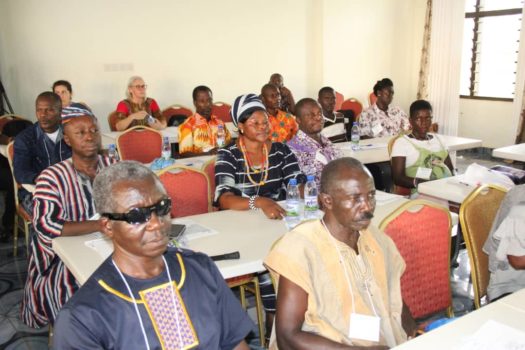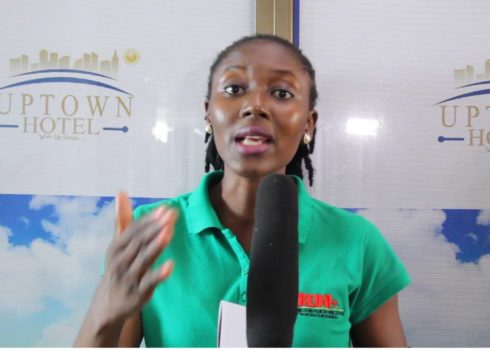
A three-day workshop on the content of Ghana’s Land Use and Forest Management Strategy Implementation has been held at Asankrangwa in the Western region. It was aimed at building the capacities of the land use governance working groups in the various Metropolitan, Municipal and District Assemblies facilitated by Codesult Network, a local Non-Governmental Organisation.
Participants were educated on the existing governance systems and frameworks, inter-institutional and cross-sectoral collaboration, Existing strategies, policies and regulations in natural resources management, stakeholder representation and inclusion, sustainable natural based livelihoods, and private sector roles in sustainable management, among others.
The workshop was also aimed at promoting effective natural resource governance through workable strategies in the Wassa Amenfi landscape. The land use dialogue is being implemented in four African countries including, Ghana, Uganda, Tanzania and the Democratic Republic of Congo with funding from the German government. In Ghana the Project covers Damongo in the Northern Region, Wassa Amenfi West Municipality and Amenfi Central District of the Western Region.
Speaking on the Ghana Forests Dialogue, Mrs. Saadia Bobtoya Owusu-Amofah, Country Coordinator for the International Union for Conservation of Nature (IUCN), said the key objectives of the workshop was to identify synergies and challenges between various stakeholder’s natural resource priorities and management plans, including Community Resource Management Areas (CREMAs), Explore roles and ways to engage private sector in sustainable landscape management, particularly in cocoa sector, Promote effective Natural Resources governance, Foster community participation and leadership in conserving forest, reducing deforestation and forest degradation, and sustainable management efforts in support of governments, develop a Landscape Strategy to guide district natural resource management, support learning around a landscape approach to natural resource management, enhance trust and collaboration across sectors and actors.

The Forests Dialogue is an International platform and process that was established in 2000 by NGOs and Business Leaders to help reduce conflict among forest stakeholders and implement pragmatic solutions to discuss key forest conservation challenges, Build mutual trust, enhanced understanding and commitment to change, Moving from a forest centric approach to landscapes.
Mrs. Owusu-Amofa stressed the need for the implementation of a sustainable landscape development policy with key stakeholder participation, gender inclusivity, transparency and accountability towards environmental preservation for future generations. She called on government to facilitate the creation of several entry points for private sector participation to support sustainable cocoa landscapes, diversification and support of community livelihoods, conservation of the country’s natural resources in a multi-functional landscape and the reclamation and restoration of degraded lands, among other strategies towards maintaining a green revolution.
She said her outfit exists to ensure transparency, accountability in land administration, increase participation across the various governance systems towards developing a comprehensive land use framework and to mainstream activities of the Community Resource Management Areas (CREMA) in the country’s assemblies in their bid to undertake reclamation and afforestation programs.
She pledged her outfit’s commitment to funding training, education and sensitisation for farm based institutions and reward schemes for prospective organisations.
In an interview, the Executive Director of the Forests Dialogue at the Yale University, USA, Mr. Gary Dunning explained that the forests dialogue engages a diversity of interests to foster relationships and build trust around contentious forest issues or fracture lines, explore the issues at hand and craft a shared understanding of the objectives, challenges bedevilling forest management and seek change through consensus based collaboration aimed at immediate and long term progress.
The Amenfi West Municipal Chief Executive, Hon. George Agyiri, who sat through the workshop admonished traditional authorities to liaise with the government through the MMDAs for a lasting solution to forest degradation in the country.
What do you think about this piece? Share your comment in the comment thread and share the story using the social media buttons above. Thank you.